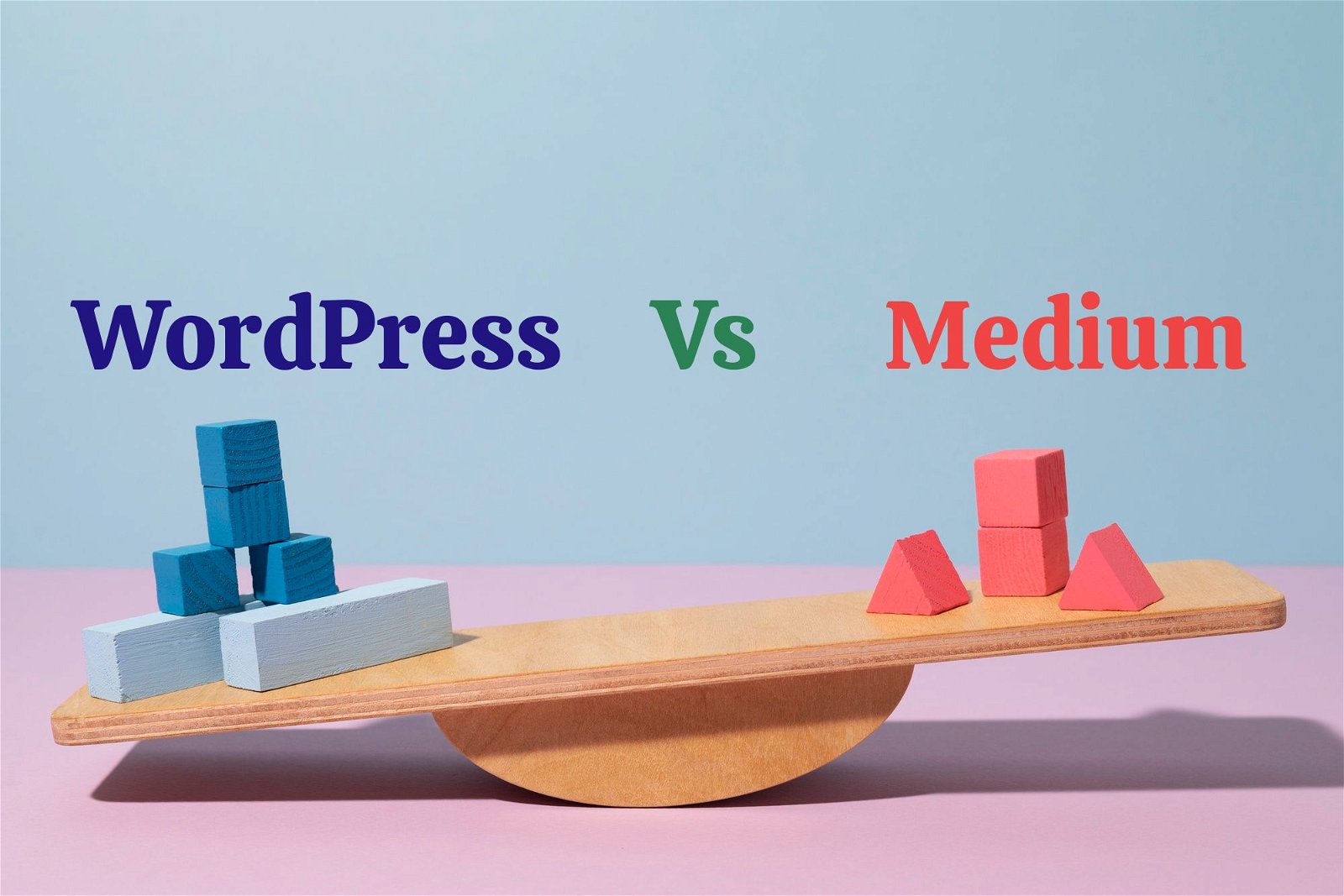The age-old question at the inception of blogging has always been, “Which blogging platform should I use?” This query is a common one, leading users to seek answers from various sources, often inundated with a plethora of options. The WordPress vs Medium debate is a perennial discussion, as both platforms offer significant advantages to bloggers. When deciding where to establish your blog, it’s important to recognize that there is no inherently wrong choice in this matter. Both WordPress and Medium are exceptional platforms, each with its own set of merits.
Table of Contents
ToggleWhat is WordPress?
WordPress is a widely-used content management system (CMS) that allows users to create and manage websites and blogs with ease. It provides a user-friendly interface and a wide range of customizable themes and plugins, making it suitable for various purposes, from personal blogs to complex e-commerce websites. WordPress simplifies the process of website creation and management, offering features like easy content publishing, media management, and user management. Its open-source nature allows for extensive customization and flexibility, making it a popular choice for individuals and businesses alike seeking to establish an online presence.
What is Medium?
Medium is an online publishing platform that allows writers, bloggers, and other content creators to share their stories, articles, and ideas with a wide audience. Launched in 2012, Medium offers a clean and minimalist interface designed to focus on the content itself. It provides tools for writers to publish their work, engage with readers through comments and feedback, and explore content curated based on their interests. Medium operates on a subscription model, offering a mix of free and paid content. Writers can earn money through the Medium Partner Program, where subscribers pay a monthly fee to access exclusive content, and writers receive a portion of the subscription revenue based on engagement with their articles.
Comparison Table
| Feature | WordPress | Medium |
|---|---|---|
| Purpose | Content management system for websites and blogs | Online publishing platform for articles |
| Customization | Highly customizable with themes and plugins | Limited customization options |
| Ownership | Self-hosted or hosted on WordPress.com | Hosted on Medium’s platform |
| Monetization | Various options including ads, e-commerce, etc. | Medium Partner Program for subscription revenue sharing |
| Community | Large community of users and developers | Community of writers and readers |
| Control | Full control over content and website structure | Limited control over platform and formatting |
| Pricing | Open-source (self-hosted) or paid hosting plans | Free to use, with subscription for premium content |
| Flexibility | Suitable for various types of websites | Primarily focused on article publishing |
WordPress Vs Medium
Let’s delve deeper into a detailed comparison between WordPress and Medium across various aspects:
1. Purpose
WordPress: Primarily a content management system (CMS) used for creating and managing websites and blogs. It offers extensive customization options and functionality for various types of websites, from personal blogs to e-commerce stores.
Medium: An online publishing platform focused on articles and long-form content. It provides a simplified interface for writers to share their stories and ideas with a broader audience.
2. Customization
WordPress: Highly customizable with thousands of themes and plugins available. Users have full control over the design, layout, and functionality of their websites.
Medium: Limited customization options compared to WordPress. Users can only customize basic elements such as profile picture, bio, and cover image. The focus is more on content creation rather than design customization.
3. Ownership
WordPress: Users have full ownership and control over their websites, whether self-hosted or hosted on WordPress.com. They can modify, export, or move their content as they wish.
Medium: Content is hosted on Medium’s platform, giving users less control over their content. While writers retain copyright to their work, Medium has the right to distribute and monetize it on their platform.
4. Monetization
WordPress: Offers various monetization options, including ads, e-commerce, membership subscriptions, and sponsored content. Users have flexibility in choosing how they want to monetize their websites.
Medium: Operates on a subscription-based model through the Medium Partner Program. Subscribers pay a monthly fee to access exclusive content, and writers earn revenue based on reader engagement with their articles.
5. Community
WordPress: Boasts a large and diverse community of users, developers, and contributors. Users can seek help from forums, online communities, and official support channels.
Medium: Fosters a community of writers and readers interested in long-form content. Users can engage with each other through comments, highlights, and recommendations on articles.
6. Control
WordPress: Provides users with full control over their website’s content, design, and functionality. Users can customize every aspect of their site and are not bound by platform restrictions.
Medium: Users have limited control over the platform and formatting of their content. While they can publish and edit articles, they must adhere to Medium’s formatting guidelines and platform features.
7. Pricing
WordPress: WordPress itself is open-source software, meaning it’s free to download and use. However, users may incur costs for web hosting, domain registration, premium themes, plugins, and other services.
Medium: Free to use for both writers and readers. However, access to exclusive content and certain features may require a subscription fee through the Medium Partner Program.
8. Flexibility
WordPress: Highly flexible and versatile, suitable for a wide range of website types and industries. Users can create blogs, business websites, portfolios, online stores, forums, and more.
Medium: Primarily focused on article publishing and long-form content. While it offers a clean and minimalist platform for writers, it’s less flexible in terms of accommodating different types of websites and content formats.
Which One Is The Best Choice?
The choice between WordPress and Medium depends on your specific needs, preferences, and objectives:
WordPress
Best Choice If: You require full control over your website’s design, functionality, and content. WordPress is ideal for users who want to create highly customized websites, such as blogs, e-commerce stores, portfolios, business websites, and more.
Advantages: Extensive customization options, flexibility, scalability, ownership and control of content, diverse community, and various monetization opportunities.
Considerations: Requires more technical expertise for setup and maintenance, potential costs for web hosting, domain registration, premium themes, and plugins.
Medium
Best Choice If: You prioritize simplicity, ease of use, and a focus on writing and publishing content without the complexities of managing a website. Medium is suitable for writers who want to reach a wider audience and engage with readers through long-form articles.
Advantages: User-friendly platform, built-in audience and distribution, minimal setup required, no hosting or maintenance costs, potential for earning revenue through the Medium Partner Program.
Considerations: Limited customization options, less control over content ownership and distribution, reliance on Medium’s platform and policies.
Final Thought
In conclusion, the choice between WordPress and Medium boils down to your individual needs and preferences. WordPress offers extensive customization options, flexibility, and control over your website’s design and content, making it ideal for users who want to create diverse types of websites. On the other hand, Medium provides a user-friendly platform focused on writing and publishing content without the hassle of managing a website, making it suitable for writers who prioritize simplicity and engagement. Consider your goals, technical expertise, and desired level of control to make the best decision for your online presence.
Interesting Reads:
How secure is WooCommerce payments?







